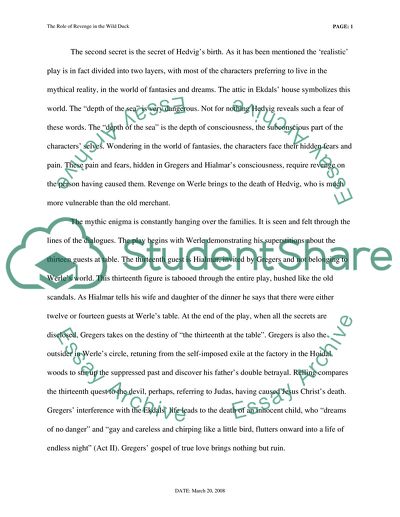Cite this document
(“The Role of Revenge inThe Wild Duck Essay Example | Topics and Well Written Essays - 2000 words”, n.d.)
Retrieved from https://studentshare.org/literature/1545247-the-role-of-revenge-inthe-wild-duck
Retrieved from https://studentshare.org/literature/1545247-the-role-of-revenge-inthe-wild-duck
(The Role of Revenge InThe Wild Duck Essay Example | Topics and Well Written Essays - 2000 Words)
https://studentshare.org/literature/1545247-the-role-of-revenge-inthe-wild-duck.
https://studentshare.org/literature/1545247-the-role-of-revenge-inthe-wild-duck.
“The Role of Revenge InThe Wild Duck Essay Example | Topics and Well Written Essays - 2000 Words”, n.d. https://studentshare.org/literature/1545247-the-role-of-revenge-inthe-wild-duck.


